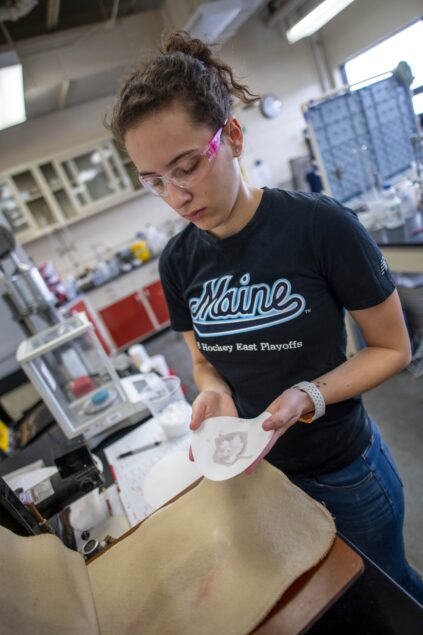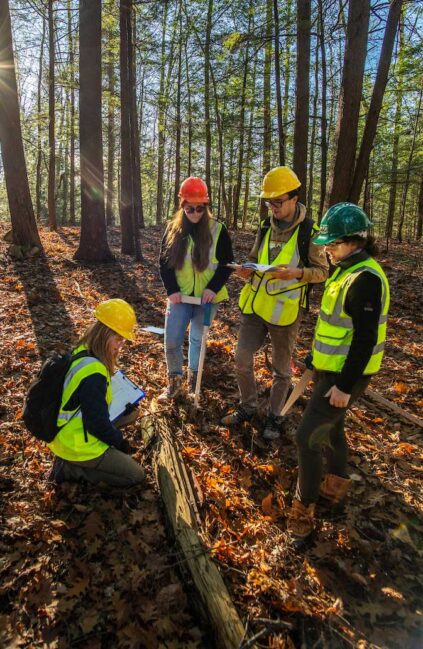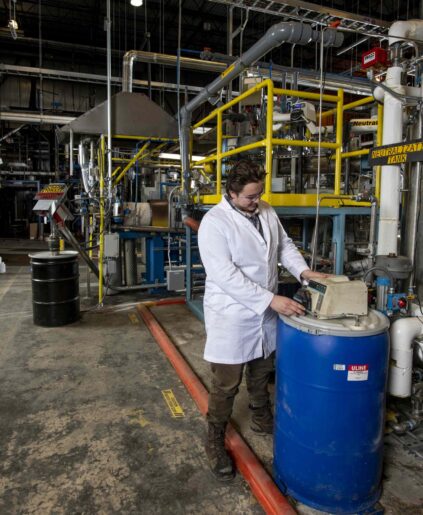About UMaine FOREST
UMaine FOREST provides strategic planning and seamless integration of research, education and outreach across the University of Maine System (UMS) to facilitate partnerships and the sustainable growth of Maine’s forest-based economy. Through the use of a dedicated forest sector ombudsman, UMaine FOREST establishes direct and consistent connections across Maine’s businesses, development groups, educators and communities. Working across and above the UMS organizational structure to better understand its administrative vision and goals, current and potential programs, facilities, equipment and professional capabilities across each university and between campuses, UMaine FOREST strives to provide integrated systems-based solutions to challenges facing Maine’s forest-based economy.


The three primary tenets of UMaine FOREST are research, resources, and relationships.
- Research focuses on utilizing an expanded supply chain scope and broader systems-based vision of the challenges to connect and support stakeholders with resources that promotes responsive research, development and commercialization activities, aligns workforce development and learner experiences with the needs of the state, and promotes forest-focused career opportunities to strengthen and expand Maine’s sustainable forest-based economy. By leveraging our collective relationship network and understanding of Maine’s resource needs, UMaine FOREST strategically develops, delivers and supports impactful solutions which address key challenges facing Maine’s forest-based economy.
- Resources are the tools to achieve success. To maximize the effectiveness of our resources, a thorough and timely understanding of both current capabilities, challenges and opportunities is crucial. The interrelationship of forest management, ecosystem science, global technologies, workforce skills, market trends, and infrastructure capacities guide decisions on feasibility and competitive advantages. By focusing on a sustainable circular forest bioeconomy, UMaine FOREST works to strengthen and expand Maine’s rural forest economy.
- The most critical and integral of the three tenets, relationships provide the conduit to effectively deliver solutions and receive feedback, providing timely and relevant information to keep abreast of the ever-changing status and opportunities in Maine’s forest-based economy. By building and sustaining relationships within the University of Maine System and across our external partners, direct connections can be disseminated which may otherwise go undeveloped. Being such a critical component, it also requires consistent, sustained, and responsive engagement to remain impactful.
Goals
- Conduct responsive research among all disciplines and fields that touch the forests, land they occupy, people and technology they support.
- Prepare tomorrow’s workforce across all aspects of how we engage, serve and live with the forests.
- Deliver relevant services to all who rely on our forests and their land for work, life, and prosperity.
- Meaningfully engage all stakeholders to increase opportunities for scientists, businesses, communities, and individuals to have an impact.
- Clearly communicate outcomes and opportunities across technical and non-technical audiences to increase overall awareness and understanding of forest-related topics.

